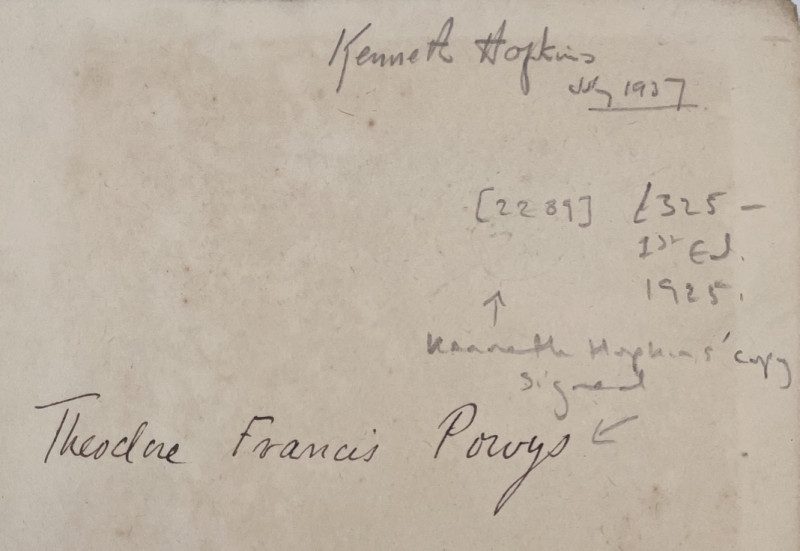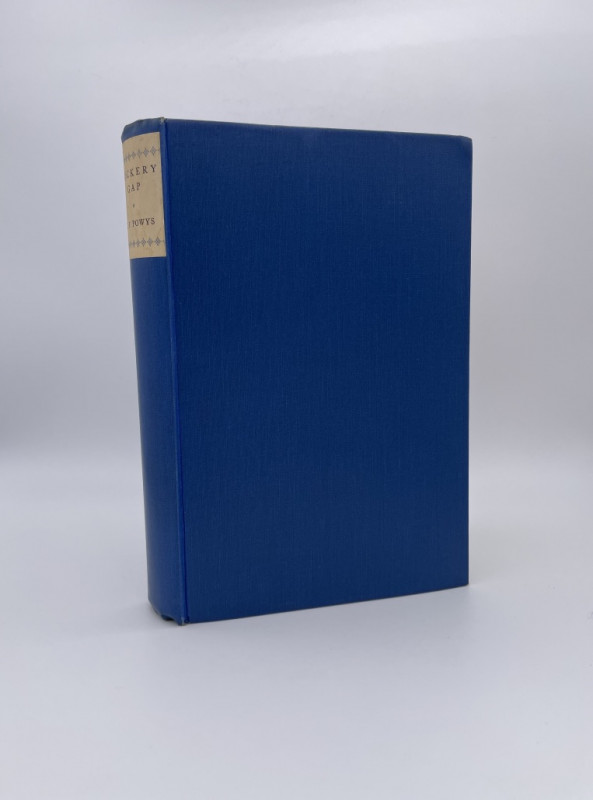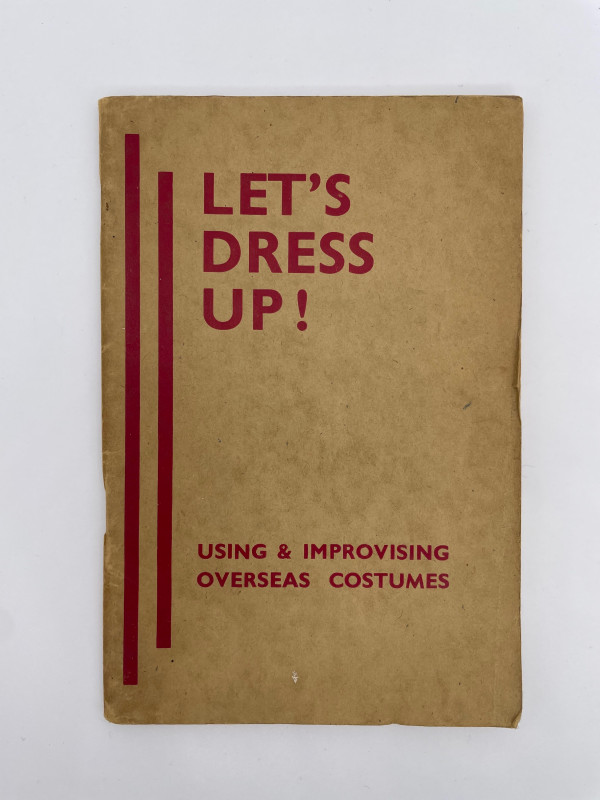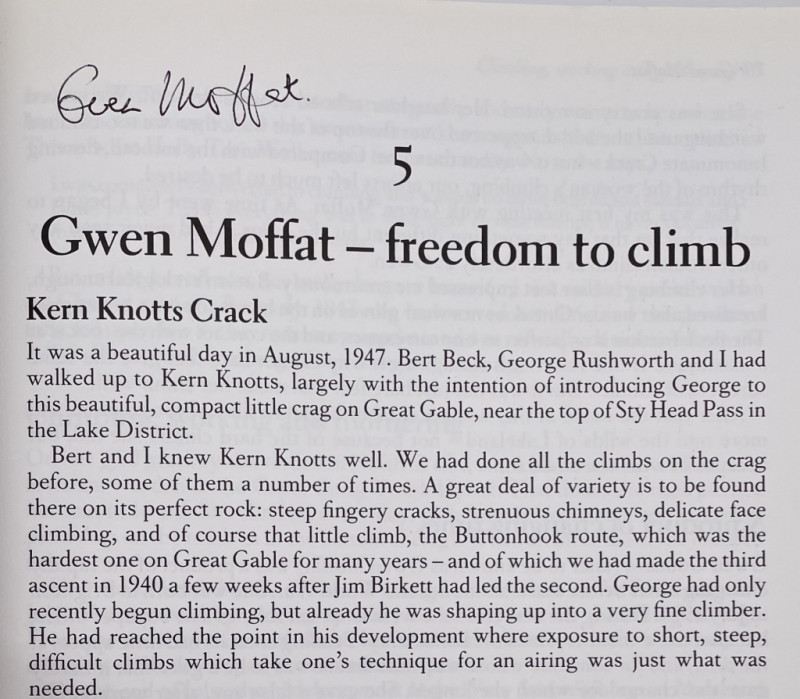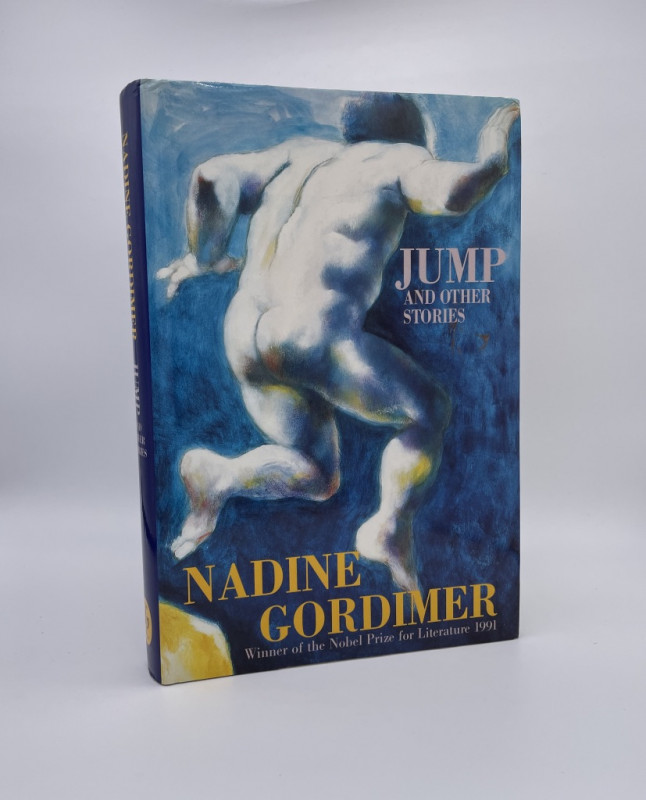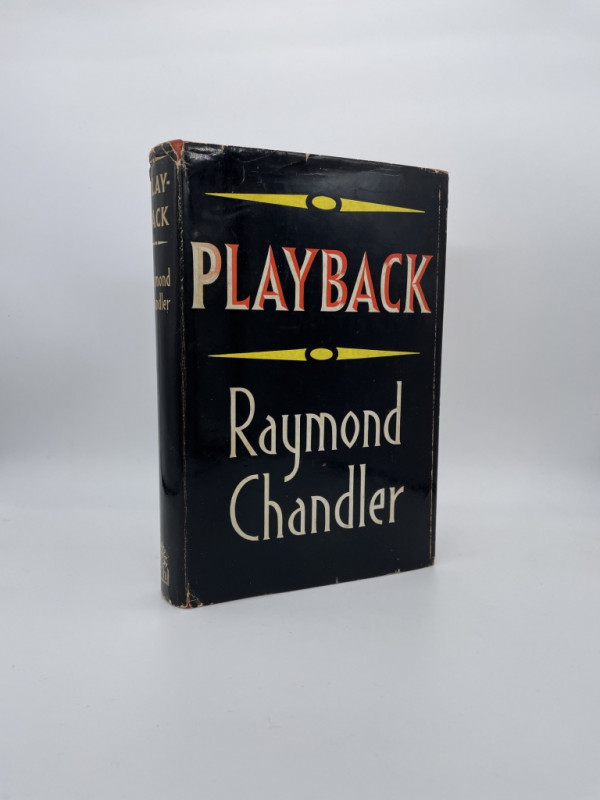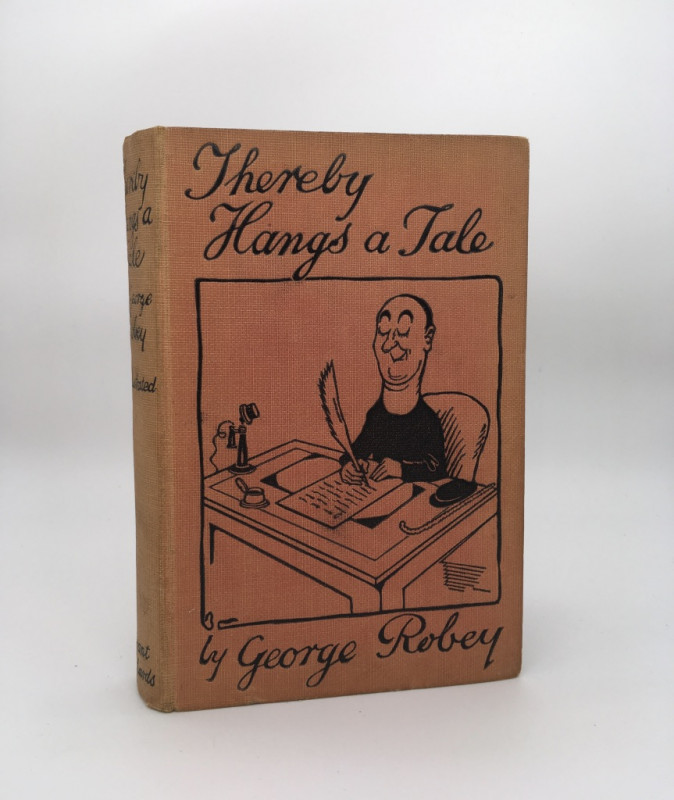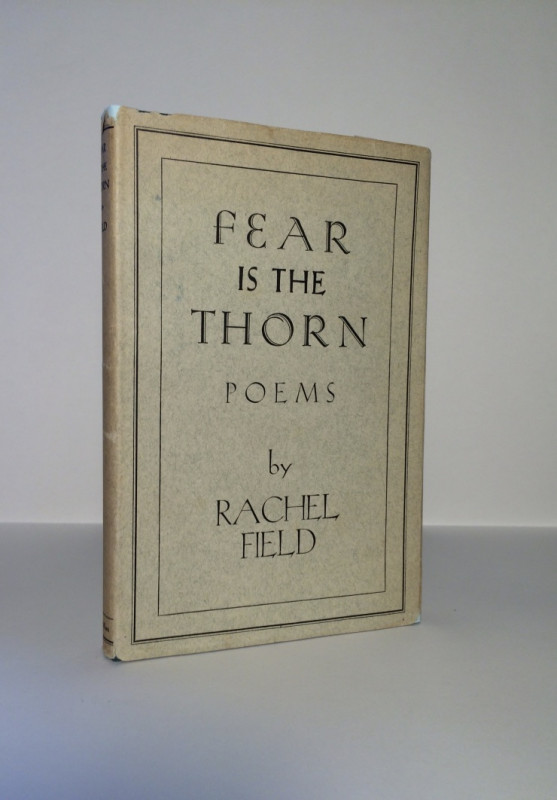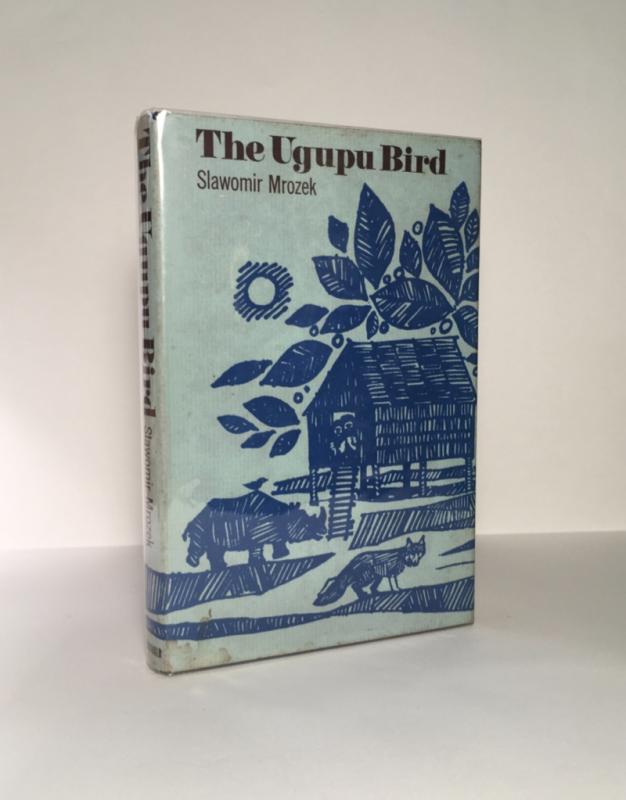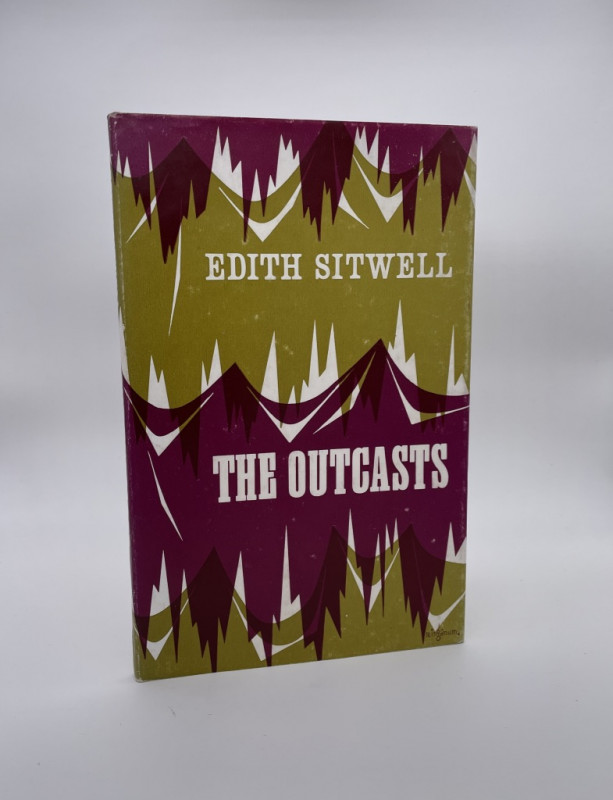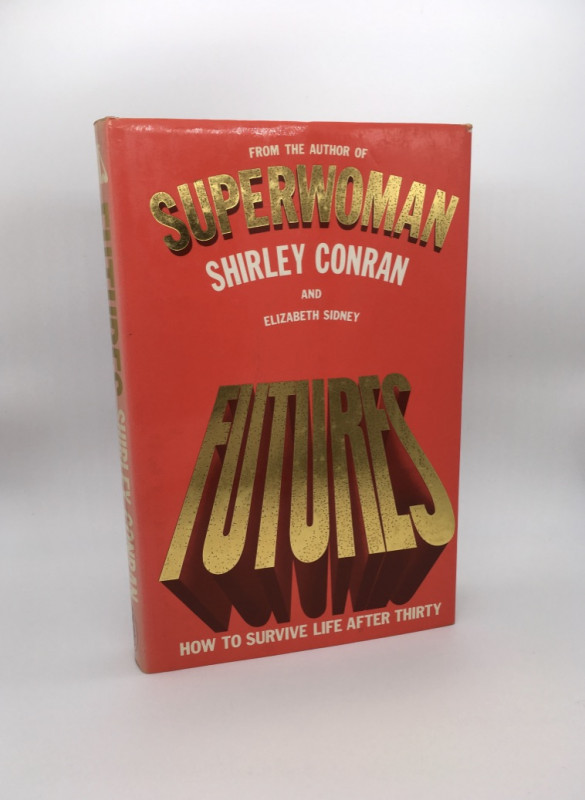Mockery Gap [SIGNED & ASSOCIATION COPY]
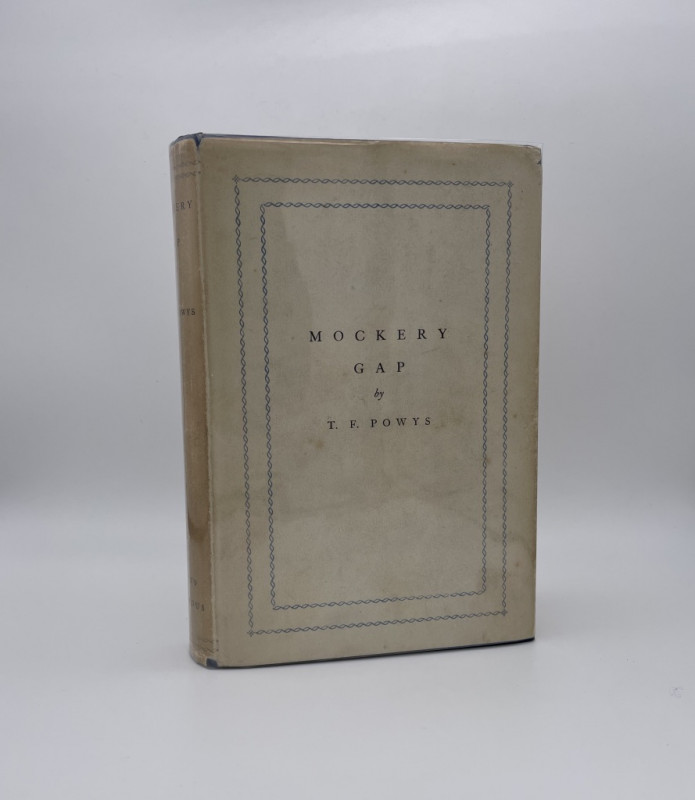
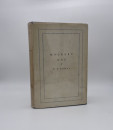


Book Description
FIRST EDITION, SIGNED BY AUTHOR. 8vo, pp. [2], vi, 271, [1]. Original blue cloth, paper title-label to spine lettered in black. Top edge blue (faded), bottom edge untrimmed. Spare title-label tipped in at rear. Slight lean to spine, extremities bumped with light wear. Foxed throughout. Signed by author in black pen to ffep: “Theodore Francis Powys,” with Kenneth Hopkins’ ownership signature in pencil above, dated July 1937, bookseller note in pencil to front pastedown. Hopkins has made occasional brief marginal notes, in blue and red pen and pencil, and drafted, dated, located (with some specificity) and signed a poem (”Because there is no happiness – you say –”) in pencil on recto of rear fep: “9.30 July 28 1937/ outside Trinity Church, Bournemouth.” In the original dust jacket: spine toned and creased, soiled, a few spots and short closed tears, chipped and creased at extremities. Good+/ good+ An important association copy, which captures something of the Powys promoter’s early poetic praxis and perspective.
Dealer Notes
The middle brother in the fraternal literary trio and outcrop of the “one huge many-headed Powys,” Theodore Francis Powys (1875 –1953) was a British Dorset-based author, best known for Mr Weston’s Good Wine (1927; a title taken from Jane Austen’s Emma). Mockery Gap is set in a small Dorset coastal village, where life is upended by the arrival of a visitor; saturated with “a sense of expectancy,” events “happen as in a dream, irrationally, unexpectedly, capriciously” (Hopkins, 1967).
Kenneth Hopkins (1914 -1988) was a British poet and novelist, publisher and lecturer, who befriended, corresponded and wrote about the three Powys brothers. He was introduced to their work via Theodore’s The House with the Echo in 1933/4, and while he was closer to Llewelyn and John Cowper, the younger writer observed: “I owe a dept to them in my own development as a writer greater than to any other contemporary source” (Hopkins, 1967). Born in Bournemouth, and apprenticed to a builder's merchant at 14, by 1938 Hopkins was selling his poems door to door, eventually reaching London, where he fell in with the anarchist and publisher Charles Lahr and his circle at the Red Lion Street bookshop. Hopkins went on to found two small presses, Grasshopper Broadsheets (1942-45) and Warren House Press (1969-1988), as well as the Saturdays, a London literary club for poetry appreciation. He held lectureships at a number of American universities, including The University of Texas at Austin, whose Harry Ransome Center holds his archive. Hopkins also saw success as a detective novelist, publishing seven novels, under his own name as well as the pseudonyms Christopher Adams and Arnold Winter.
The moment marked in Hopkin’s copy of Mockery Gap, then, was a portentous one for the soon-to-be man-of-letters: on a summer morning, writing poetry in a Bournemouth churchyard, teetering on the brink of a life-changing move to London and the beginnings of a long and varied literary career. Thirty years later, in the book that was to “pay” his “dept” to the Powyses, Hopkins returned briefly to Mockery Gap, highlighting its weaknesses as well as its Dorsetness: “there are hills and fields that are identifiably Dorset, although Mockery Gap is a village we do not meet with again—it lies closer to the sea than Shelton or Dodder or Madder, as in real life Osmington Mills lies closer to the sea than East Chaldon and, as it were, just outside the border of Powysland proper” (Ibid). Indeed, a number of Hopkins’ marginal notes identify Dorset landmarks.
Kenneth Hopkins (1914 -1988) was a British poet and novelist, publisher and lecturer, who befriended, corresponded and wrote about the three Powys brothers. He was introduced to their work via Theodore’s The House with the Echo in 1933/4, and while he was closer to Llewelyn and John Cowper, the younger writer observed: “I owe a dept to them in my own development as a writer greater than to any other contemporary source” (Hopkins, 1967). Born in Bournemouth, and apprenticed to a builder's merchant at 14, by 1938 Hopkins was selling his poems door to door, eventually reaching London, where he fell in with the anarchist and publisher Charles Lahr and his circle at the Red Lion Street bookshop. Hopkins went on to found two small presses, Grasshopper Broadsheets (1942-45) and Warren House Press (1969-1988), as well as the Saturdays, a London literary club for poetry appreciation. He held lectureships at a number of American universities, including The University of Texas at Austin, whose Harry Ransome Center holds his archive. Hopkins also saw success as a detective novelist, publishing seven novels, under his own name as well as the pseudonyms Christopher Adams and Arnold Winter.
The moment marked in Hopkin’s copy of Mockery Gap, then, was a portentous one for the soon-to-be man-of-letters: on a summer morning, writing poetry in a Bournemouth churchyard, teetering on the brink of a life-changing move to London and the beginnings of a long and varied literary career. Thirty years later, in the book that was to “pay” his “dept” to the Powyses, Hopkins returned briefly to Mockery Gap, highlighting its weaknesses as well as its Dorsetness: “there are hills and fields that are identifiably Dorset, although Mockery Gap is a village we do not meet with again—it lies closer to the sea than Shelton or Dodder or Madder, as in real life Osmington Mills lies closer to the sea than East Chaldon and, as it were, just outside the border of Powysland proper” (Ibid). Indeed, a number of Hopkins’ marginal notes identify Dorset landmarks.
Author
POWYS, T. F.; [HOPKINS, Kenneth]
Date
1925
Publisher
London: Chatto & Windus
Condition
Good/ good
Friends of the PBFA
For £10 get free entry to our fairs, updates from the PBFA and more.
Please email info@pbfa.org for more information
